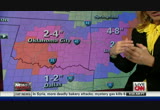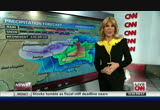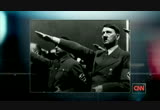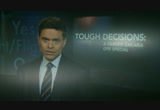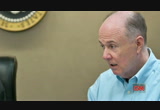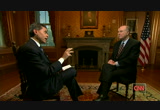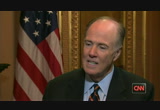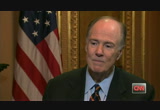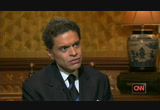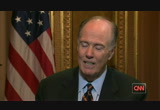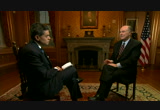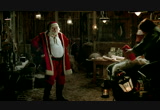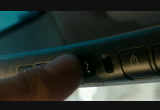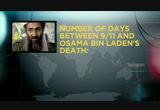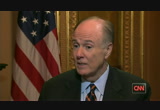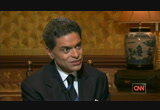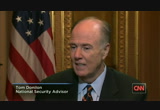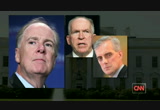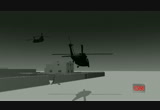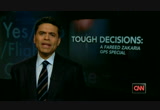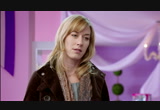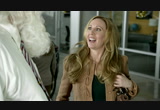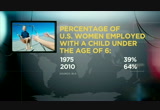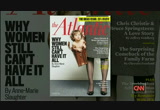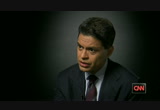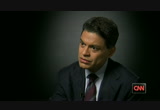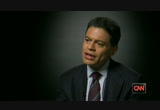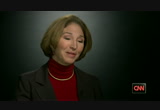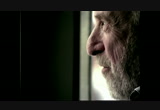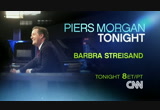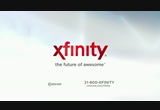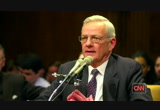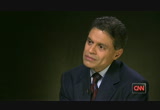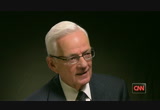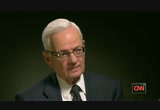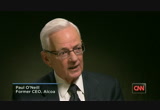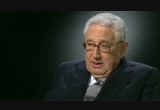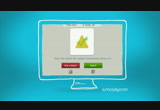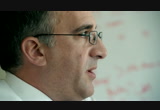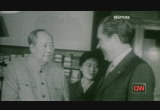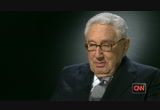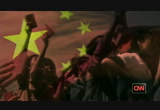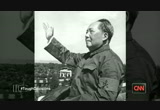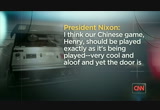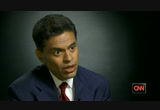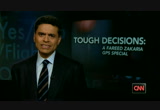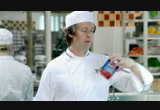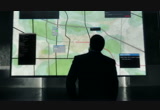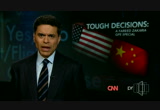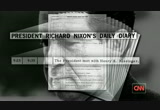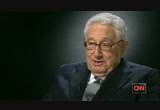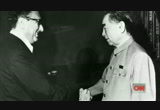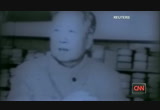tv Fareed Zakaria GPS CNN December 25, 2012 10:00am-11:00am PST
10:00 am
there's the snowy side on the back side of this. oklahoma city, you can see maybe two to four inches. we thought originally yesterday there would be a little more, but it began as ice. that's the biggest problem through oklahoma city, the nice that's kind of laying the groundwork. but look what happens from today, tonight, and then into tomorrow. this is not just a one-day affair. we're going to see this play out through tomorrow and tomorrow night. look at this, blizzard warnings, paducah, 8 to 12 inches of snow. and then cincinnati to cleveland, five to nine inches. and then in western new york, how about rochester and syracuse. a foot of snow-plus developing. tornadoes are very rare in florida and georgia. only in 2006 was the last time we had six tornadoes. so it's incredibly rare. snow in oklahoma city, only 6 of the last 122 years have had snow there. it's certainly substantial. we'll have more weather coverage throughout the day but first
10:01 am
"gps tough decisions" starts right now. the great french writer albert cameau said life is a sum of all your choices. we're all defined by the decisions we make every day and we make hundreds of them, paper or plastic, chicken or fish. most require little thought but others are as niesing and then the decisions made by leaders, some of which have changed the source of history, for better and some for worse. july 1776, the american founding fathers' decision to declare independence. january 1863, abraham lincoln's decision to emancipate all persons held as slaves. june 1941, adolf hitler's decision to invade the soviet union. august 1945, president truman's decision to use an atomic bomb against japan.
10:02 am
tonight, we'll examine the process of making a tough decisi decision. we'll hear about major decisions on an international stage, about corporate decisions and personal ones. from taking down the most wanted man in the world -- >> the president turned to us and said i made my decision. we're going to go with a raid. write up the orders. >> to giving up a dream career. >> it was this sense of almost unreality, of just i'm not sure i know who i am. >> to uprooting a company culture. >> some people actually quit. >> to opening the door to a closed society. this is like a spy thriller. >> absolutely. >> each of my guests has wrestled with a difficult choice. they will take us through their deliberations, their fears, and how they made their tough decisions.
10:03 am
at 11:00 p.m. on may 1st, 2011, two black hawk helicopters, 23 navy s.e.a.l.s, a translator and a dog named cairo took off from jalalabad, afghanistan. the mission, to kill the world's most wanted man, osama bin laden. >> death of bin laden marks the most significant achievement to date in our nation's effort to defeat al qaeda. >> most have heard the incredible details of the bin laden compound raid, but little has been revealed about the intense, months' long deliberation that led to the final decision to act. so how was the decision made? who was told? how did they weigh the options? tonight we will ask the man tasked by the president to synthesize the intelligence, analyze the assessments, and run the decision-making process, to act in a sense as gatekeeper of this monumental decision.
10:04 am
i sat down with national security adviser tom donilon in the secretary of war suite of the eisenhower executive office building. when you come into the white house, has the trail for osama bin laden gone cold? >> when we came into office at the beginning of 2009, the trail had gone cold. we really hadn't had a good case as to his whereabouts since he was at tora bora in 2001. >> what did the president say at this point? he tells leon panetta get bin laden. >> in the spring he asked to see me and rahm emanuel and he said i want to re-energize the hunt for osama bin laden. i want you to make this your top priority. i want to get reports every 30 days. >> august 2010, leon panetta comes back to the president with some information, correct? >> that's correct. in the summer of 2010, the cia
10:05 am
then led by leon panetta, came to us and indicated they had evidence that was interesting to them at that point, that led them to believe that there was a high value person of interest at abad bad pakistan at a compound there. >> at what point did it become tler there was a high likelihood that was osama bin laden? >> you say high likelihood. even at the last principals meeting on april 28th, 2011, where the principals sat with the president and gave them their view, even at that point it was a wholly circumstantial case. there was not direct evidence you could present to the president at that point saying we guarantee you we have direct evidence that osama bin laden is at this compound. >> one of the things you decided to do and it must have been the president and you or very small number of people, to limit access to this information and decision making to a very tight circle. >> yes. >> that excluded the secretary
10:06 am
of state, the secretary of defense. take us through that decision making. >> there was a decision made because of the extreme sensitivity about this to have at the first -- in the first instance have the analytical people be really the sole team working on this. >> at the cia. >> at the cia. and then it moved and we made decisions about going operational, that is needed to bring in the special forces, it expanded a bit but the president was insistent that it obviously be very closely held, that we have the people involved at every stage who were necessary to be involved, and why was that? operational security on this obviously was incredibly important. and i think it was a testament, frankly, to the seriousness of purpose and frankly to the character of the individuals involved in this that not a thing leaked from august of 2010 until may of 2011. >> that's the extraordinary thing, which is by keeping it that secret, you were able to in a sense slow down the clock so that you had time to accumulate
10:07 am
evidence and make a decision. >> yeah. i think -- that's an important aspect generally of hol si making in the national security realm and that's the balance, obviously, between transparency and secrecy and confidentiality. for an operation like this where operational security is absolutely e sengts, keeping it small, keeping it to a group that is an absolute need to know does give the president and decision makers more space and more time to go through the options. and in this case, of course, we considered every aspect of this and were able to do so because we had had -- we did have exceptional operational security. >> you also had to make a decision about when to act because, as you said, there was never a moment where you had overwhelming evidence, and so how did you make that decision? when did it seem that you had achieved a kind of critical balance of evidence? >> there was a point reached where the intelligence professionals came and made the determination and put it to the president that we're not likely
10:08 am
through whatever means we have available to us to gain any more information that's going to make this any more certain. >> so now you have to decide what to do. were all options carefully considered? >> they were carefully considered, and there were really several options. don't act because the evidence isn't strong enough and the risks are too high. we can go through that. have a standoff attack. work jointly with the pakistanis on a operation. or have a unilateral raid. at the end of the day the reason i think that the president did the unilateral raid, the reasons were several fold. number one, it allowed certainty. that there wouldn't be a debate after the operation as to whether or not, in fact, osama bin laden had really been taken out. we would have proof, and we just wouldn't have bought the united states a propaganda war around this. second, it also allowed us to limit the potential for
10:09 am
casualties of noncombatants and we discovered, obviously, during the course of the raid that there were close to two dozen noncombatants at the compound. three, it allowed us to limit casualties with respect to people around the compound, completely innocent. and the president had a lot of confidence in that option for this reason. although it was 50/50, let's say, there was only a circumstantial case, he had 100% confidence in the special forces that would do this. in fact, they would have the ability to get to the target, do the operation, and get back because he had tremendous amount of experience with them. and this obviously is you a nek american asset and a team of people who have been doing this for years in afghanistan and iraq and around the world. >> coming up, inside "the situation room." the moments leading up to the final call. >> the president said thank you and you will have my decision tomorrow and he got up and walked out. it's got live tiles so all my stuff's always right there in real-time.
10:10 am
it's like the ultimate personal assistant. but i'm me, and me needs handlers. so i hired todd to handle it for me. todd, gimme that hollywood news! what's happening on twitter? you're trending! yes! you can't have a todd, but you can have your own personal assistant. i guess you could call it todd. [ male announcer ] the new nokia lumia 920 with live tiles that deliver what you want in real time. only from at&t. rethink possible. campbell's has 24 new soups that will make it drop over, and over again. ♪ from jammin' jerk chicken, to creamy gouda bisque. see what's new from campbell's. it's amazing what soup can do. ♪ ♪ [ male announcer ] everyone deserves the gift of all day pain relief.
10:11 am
this season, discover aleve. all day pain relief with just two pills. [ female announcer ] almost nothing can dampen a baby's mood, when he wakes up dry in pampers. unlike other diapers, pampers has 3 absorbent layers, for up to 12 hours of protection overnight, and more beautiful mornings. ♪ pampers. peaceful nights. playful days.
10:12 am
10:13 am
president knew that he was weighing a decision to kill or capture osama bin laden. the risk of a leak was deemed so great not even the secretaries of state or defense were in the loop until the final weeks. worries about the huge potential downside loomed large. no one wanted a repeat of the iran hostage crisis, desert one debacle. the high stakes missions one of the delta forces first that turned into a deadly inferno when a helicopter and plane collided. here now, more of my interview with the man tasked to run the decision-making process, president obama's national security adviser tom donilon. did people worry this was going to be desert two? >> yeah. f farid, this is why it was a difficult decision. what were the risks? there were risks to the forces carrying out the operation. there was a risk of failure and its impact on the united states and its face to the world. there was risk to the pakistani
10:14 am
relationship. we were undertaking a unilateral action inside pakistan to go after osama bin laden. so all those risks were on the table and had to be considered by the president and the principals who made their recommendation. there was a lot of history present in the room, secretary gates. there was a national security aide during desert one. i was a young aid to president carter. vice president biden was in the senate. it was clearly on people's minds. also what was in the room, it's interesting, was one of the aspects that came out of desert one and that was the formation of a unified special operation forces command, the very troops, the forces here that would carry out this operation that had become such a unique asset of the united states. >> the president made one decision informed it seems to me like that history, which is he asked for two backup helicopters. >> the president asked for enough assets to ensure that the united states on its own could get in and could get out of the
10:15 am
abbottabad compound. >> so now take uso that moment or was it a series of meetings what we now know is that vice president biden voiced reservations about an actual raid as opposed to a missile strike. secretary gates did. some key military leaders did. what was that like? was it a situation where the majority of the president's advisers were urging him not to do this? >> to get to this point, there were two dozen interagency meetings leading up to this point but on the thursday before the raid, it was the final principals committee meeting, a national security council meeting with the president in the chair having a discussion about -- and receiving the final briefing on the various operations, the various alternatives. and he did ask each of the members, senior members of the national security team, for their views. and it was a room with divided counsel. and at the end of the day, the president said thank you, and you'll have my decision tomorrow and he got up and he walked out
10:16 am
of the situation room, up the stairs, and across the famous colon aid and went back to his residence and the decision rested with him. one person on behalf of over 300 million americans making that decision. >> were you nervous grappling with this issue? how much did it way on you? how much did you take it back with you home? how much was it sort of an all-consuming issue? >> you know, we were doing the rest of our business as well. it was part of the operational security. as is the style of this president, it was very methodical, very organized, moving through the issues one by one, and, of course, we thought about it a lot, and obviously he thought about it a lot having to make the final decision and he did that night and again the next morning at around 8:00 i heard from him and he said meet me in the diplomatic room, and myself and john brennan and dennis mcdonough and chief of staff bill daley met him and he turned to us and said i made mi decision, we're going to go with a raid. write up the orders.
10:17 am
>> what do you do? >> i returned to my office and drafted the orders and signed them. >> and then how was it operationalized? >> we had developed prior to that literally a playbook of every step that would have to be taken from the point that the president made the decision and we began to implement that. we came into the office on sunday morning and we began a 10 1/2 hour principals committee meeting. >> 1012 hours continue us with i olympic? >> yes. >> and you were watching that? >> yes. >> when it began, how nervous were you? >> focused is a better way to describe it. >> were there any drops in mood when that helicopter malfunctioned? >> yes, of course. yeah, a helicopter did malfunction and a tail hit the wall and it had a hard landing. but contingencies had been planned for including that and the operation went forward without missing a beat. >> when did you breathe a sigh of relief. at what point did you know that the mission was completely successful? >> nobody breathed a sigh of
10:18 am
relief including the president until we heard that all the forces were back across into afghan air space and they were out of pakistan air space. >> the united states has conducted an operation that killed osama bin laden, the leader of al qaeda, and a terrorist who is responsible for the murder of thousands of innocent men, women, and children. >> when you think about why the president made this decision, why this focus, why take this risk for this operation, it's because it is important for the united states to do what it says it's going to do. and i'd like to think that if there had been a c span covering the activities of the american government leading up to and through the successful completion of the raid against osama bin laden, that the american people would have been proud. >> up next, a very different set of parameters leading to a tough decision. it's a choice that millions of women face in the course of their lives.
10:19 am
>> the stress was just overwhelming. i couldn't live up to that responsibility. let's say you want to get ahead in your career. how do you get from here... to here? at university of phoenix we're moving career planning forward so you can start figuring that out sooner. ln fact, by thinking about where want your education to lead, while you're still in school, you might find the best route... leads somewhere you weren't even looking. let's get to work. time for citi price rewind. because your daughter really wants that pink castle thing. and you really don't want to pay more than you have to. only citi price rewind automatically searches for the lowest price. and if it finds one, you get refunded the difference. just use your citi card and register your purchase online. have a super sparkly day! ok. [ male announcer ] now all you need is a magic carriage. citi price rewind.
10:20 am
start saving at citi.com/pricerewind. i have a cold, and i took nyquil, but i'm still "stubbed" up. [ male announcer ] truth is, nyquil doesn't unstuff your nose. what? [ male announcer ] it doesn't have a decongestant. no way. [ male announcer ] sorry. alka-seltzer plus fights your worst cold symptoms plus has a fast acting decongestant to relieve your stuffy nose. [ sighs ] thanks! [ male announcer ] you're welcome. that's the cold truth! [ male announcer ] alka-seltzer plus. ♪ oh what a relief it is! ♪ [ male announcer ] to learn more about the cold truth and save $1 visit alka-seltzer on facebook.
10:23 am
>> i'm going to let ann marie start. >> well, the first things -- >> as director of policy planning at the state department, she worked extremely closely with secretary of state hillary clinton traveling the world and providing strategic analysis and advice on the days' most complex and urgent international issues. she was the first ever woman policy planning director. it was, she said, the job she had always wanted. >> no one is happier than i am that this day is here. >> but then slaughter just gave it up, quit, turned in her resignation letter to secretary clinton and left washington. she resumed her princeton professorship and life in new jersey with her husband and two teenage sons. in the wake of her departure, slaughter wrote a cover story for "the atlantic" magazine, why women still can't have it all. within days the piece became the most read in "the atlantic's"
10:24 am
150-year history. over 1 million views in the first week alone. tonight ann marie slaughter takes us behind that personal decision that became a raging public debate. explain the intensity of that kind of job because it's really much more than what many people think. this is a more intense job than a very senior job in the private sector. >> it's certainly comparable. it's an assistant secretary level job which means, you know, you're on pretty much all the time. you're the head of the secretary of state's private think tank and that means you cover the entire world just as she does and you're on for everything she needs you to do and sort of the longer term planning, and you work pretty much around the clock. >> so you're working probably six days a week. >> absolutely. now, i commuted back every weekend because i had to be with my kids in princeton every weekend but i would do plenty of work on the weekends.
10:25 am
had i been in washington i probably would have been working seven days a week. >> generally speaking, you would get into the office what time in the morning and leave at what time? >> it would begin between 6:00 and 7:00 in the morning and it would end around 11:00 at night. >> every day. >> pretty much. >> and many of these meetings can't be rescheduled. i mean, you have a meeting between 20 countries in kazakhstan and it's going to happen, it has to happen. if you have a personal problem, there's no way to reschedule. >> no, absolutely not. i always say you can't tell the egyptian revolution hold, i have got to go home, come back on monday. you have to respond, you have to be there. >> you enjoyed the job. >> i did. >> this was in some ways your dream job. >> yes, it was. >> but then two years into it you decide you're going to leave. >> yeah. because the hard part was actually realizing i've always been somebody who wants to do these jobs, foreign policy is my
10:26 am
passion, and yet actually i'm also a mother and i want to be at home for the last five years that my children are at home and it was hard for me to admit that to myself but in the end i had to recognize both as a matter of need and want that my life was going to go in a different direction than i had always expected it would, and i had to listen to that and i had to in the end kind of say, wow, maybe i'm not quite the same person i thought i was, but i know this is the right thing for me to do. >> what was the most difficult part of your job in relation to balancing it with your role as a mother? >> it was just that sense so often where, you know, particularly my oldest son really needed me home, needed us both there, and i was in another place, and i could not do anything about that. you know, i think that is true for millions of parents and certainly millions of women, and i realized the stress was just
10:27 am
overwhelming of knowing that i had a child who really did need me and i couldn't respond. i couldn't live up to that responsibility. >> after you came to your decision, you must have talked to secretary clinton. she's a working woman, like you. what was that conversation like? >> first thing i just have to say, she was a fabulous boss and she fully understood the tensions of having children who are teenagers with this kind of a job. in many ways i felt like she gave me permission to go home. i sort of thought to myself, well, if hillary clinton could have the kind of career she had post-kids and if she understands these kinds of stresses, it's okay. you know, i can go home. >> hillary clinton when she was asked about your article, which, you know, obviously everyone had read, she said look, i have always advocated for flexibility but some women can handle the space and others can't. what would you say about that? >> i don't think it's a question
10:28 am
of the pace. i actually love the pace and i will impose that on myself no matter how argued you are, you need more flexibility. you need the ability to step out for a while and come back in which many women don't have or you need the ability particularly at lower levels to work from home a little or to simply have more flexibility. i'm still working more than full time, but working in a way that i can get up in the morning and be with my kids and go to sleep in the morning and be with my kids and be there if they really need me. i'm not the hero. the heroes are the people who don't have choices and still work to support their kids. both secretary clinton and i share the same goal of getting women to the top and i think it's going to take more than just great organization to get us there. >> are your kids happy that they see a lot more of you now? >> yes, although there would be definitely days where both their father and i are beating on them to do their homework or whatever where i think they might want to ship me back to washington. no, overall, there's no question
10:29 am
this is far better, and this is the kind of family life that i had kids to have, and it's never perfect, but it is a blessing. >> up next, rescuing a company in distress and starting with a very unusual tough decision. >> they were mystified. they were like what is this guy supposed to be talking about? and later henry kissinger on a top secret white house decision that changed history. so, this board gives me rates for had kids to have, and it's never but you're progressive, and they're them. yes. but they're here. yes. are you...? there? yes. no. are you them? i'm me. but those rates are for... them. so them are here. yes!
10:30 am
you want to run through it again? no, i'm good. you got it? yes. rates for us and them -- now that's progressive. call or click today. i just finished a bowl of your new light chicken pot pie soup and it's so rich and creamy... is it really 100 calories? let me put you on webcan... ...lean roasted chicken... and a creamy broth mmm i can still see you. [ male announcer ] progresso. you gotta taste this soup. [ male announcer ] jill and her mouth have lived a great life. but she has some dental issues she's not happy about. so i introduced jill to crest pro-health for life. selected for people over 50. pro-health for life is a toothpaste that defends against tender, inflamed gums, sensitivity and weak enamel. conditions people over 50 experience. crest pro-health for life. so jill can keep living the good life. crest. life opens up when you do.
10:33 am
paul o'neill may be best known as secretary of the treasury under president george w. bush, but it's a difficult call he made years before that that altered the course of a major american company and literally saved lives in the process. >> i can't say to you, you know, this is all one group or all another group. >> in 1987 o'neill became ceo of one of the largest and oldest aluminum companies in the world alcoa. on the eve of its centennial, the storied corporation was in trouble. inefficient, rapid expansion had left profits dwindling and moral waning. putting o'neill in charge was a big change. in nearly 100 years, alcoa had never hired an out of house ceo. someone who had not climbed through the ranks of the
10:34 am
tightly-knit management system and who was not well-versed in metal making. the company was in for a surprise with the first decision o'neill made. executives and shareholders thought it was bizarre, unorthodox, and indifferent to the bottom line. so what was that decision? let's find out. when you came to alcoa, describe what the company was like in terms of its financial situation. >> it was a company that was in some difficulty. they had been losing market share and their profits were not nearly good enough to cover their cost of capital. >> what was the first thing you decided to do? >> the first day i was there i asked the vice president, who was then in charge of safety to come and show me the facts about where alcoa was. in those days they were quite good in terms of safety. their injury rate per 100 workers was 1.86, almost 2
10:35 am
injuries per 100 workers that caused people to miss one day of work. at that time the national rate in the united states was 5 injuries for 100 workers. after i praised the vice president, you're really good and done great things, i said to him, i want you to know something because this is what i'm going to do from now on. i'm going to say publicly to everybody who will listen to me, people who work at alcoa should never be hurt at work. we should have zero injuries. >> so you come into this troubled company as this outside ceo, and you say the first thing i'm going to focus on is worker safety. did wall street understand you? did your board understand? why is this guy focusing on worker safety? >> it took a while. i tell you, the people who had been in the organization for a long time, they didn't say it to my face but behind my back they were saying, he doesn't know anything about making aluminum. it's 2,000-degree metal flowing around the plants. there are clanging overhead
10:36 am
skran cranes, forklift trucks racing around these massive factory floors and he doesn't understand but as soon as the metal prices go down he'll shut up and we'll go on being as good as we already are in health and safety, and i knew i would have that kind of reaction. first time i came to wall street, they invited me to come and have a luncheon meeting with the new york financial analyst community in a big amphitheater down on wall street, maybe 250 people in the room. so i got up and i said to them, well, first thing i want to talk to you about is safety. they were like what is this guy supposed to be talking about margin improvement and, you know, more aluminum in cars and -- what is he doing talking to us about safety? >> you decide to focus on workers' safety really as a path of changing the culture of the place and showing you can always improve at anything. what were you thinking? >> i believed that human beings have what i call discretionary
10:37 am
energy that they can give you or not, and i don't think they will give it to you if they don't feel that they're treating with dignity and respect every day. if people can say i'm treated with dignity and respect, a down payment on that is nobody ever gets hurt here because we care about our own commitment to our safety and we care about the people we work with, and it swells up into everything you do so it creates a sense of pride about the organization you're involved in. >> and then you start asking them for increased productivity and increased -- >> they give it to you. you don't actually have to ask for it. you need to turn them loose. >> describe how alcoa did over the course of your tenure. >> well, we went from 1.86 for 100 workers per year having an injury that caused them to miss a lost work day. we got to 0.13.
10:38 am
to give you a reference point, the number in health medical care institution in the united states is 5. >> and now describe what happened to alcoa commercially, financially under your tenure. >> well, i think we improved the market capitalization of the company 900% while i was there. so we went from basically a company that the market valued at $4 billion to $28 billion in 13 years. >> and you attribute that to the -- the start of it was that decision. >> it was bringing people together and releasing their energy in a positive way. >> so then they believed in you. >> yes. >> up next, perhaps the most consequential decision in american foreign policy of the last 50 years. >> we had no way of knowing who was on the other side. octor wily get smart about your weight. i tried weight loss plans... but their shakes aren't always made for people with diabetes.
10:39 am
that's why there's glucerna hunger smart shakes. they have carb steady, with carbs that digest slowly to help minimize blood sugar spikes. and they have six grams of sugars. with fifteen grams of protein to help manage hunger... look who's getting smart about her weight. [ male announcer ] glucerna hunger smart. a smart way to help manage hunger and diabetes.
10:40 am
[ male announcer ] glucerna hunger smart. customer erin swenson bought so, i'm happy. today. sales go up... i'm happy. it went out today... i'm happy. what if she's not home? (together) she won't be happy. use ups! she can get a text alert, reroute... even reschedule her package. it's ups my choice. are you happy? i'm happy. i'm happy. i'm happy. i'm happy. i'm happy. happy. happy. happy. happy. (together) happy. i love logistics. progressive direct and other car insurance companies? yes. but you're progressive, and they're them. yes. but they're here. yes.
10:41 am
are you...? there? yes. no. are you them? i'm me. but those rates are for... them. so them are here. yes! you want to run through it again? no, i'm good. you got it? yes. rates for us and them -- now that's progressive. call or click today. ♪ ♪ [ male announcer ] everyone deserves the gift of all day pain relief. this season, discover aleve. all day pain relief with just two pills.
10:42 am
i'm george howell at cnn world headquarters in atlanta. hope you're having a great christmas day. for many of you though it will be a wet, white, windy christmas. winter storm warnings went up from arkansas to oklahoma. there's a possibility of half a foot of sleet and snow. tornadoes are a big concern for much of louisiana, southeast texas, mississippi, and georgia and the western panhandle of florida. elsewhere, the shooter who ambushed and killed two upstate new york firefighters monday left a chilling note. william spengler wrote, quote, i
10:43 am
still have to get ready to see how much of the neighborhood i can burn down and do what i like doing best, killing people. spengler set his home on fire, then waited nearby and shot four firefighters who responded killing two of them before taking his own life. at the vatican pope benedict called for peace in syria. more than 40,000 syrians have been killed since that conflict began. and there is new tape out today of the first lady with kids. the night before christmas and first dog bo and all seem to be loving a good story. >> good afternoon, everyone. >> this is exactly what he does at home. he tries to beat malia and sasha to my lap. this is one of my favorite things to do during the holidays is coming to the children's hospital to see all of you, and i want to thank my escorts,
10:44 am
jordan and a.j. you guys are awesome. you did a fabulous job escorting me here. i made it. >> and those are your headlines this hour. i'm george howell. we'll have more news in about an hour. it was one of the most important diplomatic missions in history. also one of the most clandestine and risky. four decades ago henry kissinger, then president nixon's national security adviser, secretly flew to china beginning a string of meetings that would eventually open that isolated eastern nation to the western world. that opening checked soviet expansion imp and in a sense was the beginning of the end of the cold war. >> this was the week that changed the world. >> it was also the beginning of
10:45 am
china's entry into the world economy, which has resulted in that country becoming the world's second largest economy. >> red china's battle plan. >> but back then the idea of a ra approachment with china would have been rejected as pure fantasy. they had been fighting america and its allies across the globe. how did the decision come about in the midst of such intense opposition? what were the internal maneuverings that paved the way, the secret dealings that made it actually happen? who better to ask than the man himself, dr. henry kissinger. this is what the world looked like when you enter into the white house with richard nixon. the united states has had no relations with china. we have been inplaquablely opposed to this regime. we fought against them, american soldiers died in the korean war
10:46 am
fighting the chinese, we fought them indirectly in vietnam. we recognized taiwan as the republic of china, and you come into office and within three years you open relations to china, agree to withdraw american troops from taiwan. what made you make that decision? >> the conviction was that a country of the magnitude of china could not be kept out of the international system indefinitely and would distort the international system. also, we thought if the soviet union, which had just occupied czechoslovakia could now do the same to china, that would change the psychological and strategic position in the world. >> and it was here in the growing wedge between the two communist powers that nixon and kissinger saw an opening. they would lean toward china. trouble was how to contact a regime whose very existence the united states denied? >> we came up with the idea that our ambassador in warsaw should
10:47 am
walk up to the chinese ambassador at the next social event in which they were both present and ask for a meeting and say we wanted to talk. >> this was like a spy thriller. >> absolutely. so thereof was a yugoslav fashion show and they were both there. our ambassador walked over to the chinese and our ambassador chased him down the hallway and finally cornered him long enough to say we wanted to talk. two weeks later a chinese car flying the chinese flag arrived at our embassy and brings the ambassador saying, okay, i'm ready to talk. >> but the meetings met with little progress. in the summer of 1969 with lower bureaucratic channels broken down kissinger and nixon devised a plan to go straight to the top, right to chairman mao. during a trip to pakistan they asked the president to arrange the china connection. >> nothing happened for six
10:48 am
months, and then we got a message from the chinese via pakistan that basically said we should start talking but in a very convoluted way. between each of these communications there was about three months because they were hand carried, handwritten. it was 19th century style diplomacy. >> so untraceable in case it was found. >> somewhat deniable, somewhat less embarrassing. we had no way of knowing who was on the other side. >> dr. kissinger, mr. president. >> hi, henry. >> mr. president. >> yeah. >> nixon and kissinger knew that one misunderstanding, one slip up could derail these initial contacts. >> i think our chinese game, henry should be played exactly as it's being played, very cool and aloof and yet the door is open. now you walk in kids and it's your move. >> in 1971 during a lag in
10:49 am
dispatchers, the lob of a tiny ball nearly derailed the plan. >> the chinese on their own to our intense confusion invited the united states ping-pong team to china, which they did as a warning to us which in effect said you better hurry up with your answer because if you don't do it in the channel we are talking now, we may go public. it was an intense difficulty for us because none in our government knew about the private channel. literally no one except nixon and me and one or two people who were technicians. >> but let me ask you about the risks here because the chinese are a complete black box to you. all you know is that they're pretty crazy, at least seemingly so from the cultural revolutions. >> absolutely.
10:50 am
>> so this whole thing if exposed could have been a disaster. >> and, therefore, it was to the enormous credit of nixon that he would take those risks. >> did he worry about the risks when you would talk about them? >> you know, nixon on issues of national interest was enormously courageous, and what's even more remarkable is that nixon was inherently a pessimist and even when taking these risks had a certain sense of doom, that they might not really work, but he felt this was the one move that had to be made. unfreeze the situation. >> so he decides that you will go to china? >> yes. >> when we come back the secrets and the stealth deploiplomacy t
10:51 am
made it all happen. issues with three strains of good bacteria. approved! [ female announcer ] live the regular life. phillips'. in that time there've been some good days. and some difficult ones. but, through it all, we've persevered, supporting some of the biggest ideas in modern history. so why should our anniversar matter to you? because for 200 years, we've been helping ideas move from ambition to achievement. and the next great idea could be yours. ♪
10:52 am
10:54 am
10:55 am
representative. the news could not have been bigger or more top secret. not even the vice president or the secretary of state knew about the attempts to re-open relations with china. as i continue my conversation tonight he takes us behind the scenes of the decision that changed history. >> he decides that you will go to china? >> yes. first he has to decide whom is he going to send? and he might do foolish things so the process, nixon concluded that he had worked with him. >> i'm going to finesse all actions on china.
10:56 am
>> it would require keeping the press entirely in the dark. >> that would be the best possible position to take. >> squeal as they will. >> even the smallest leap would shut down the ambitious leap. >> you go to pakistan? >> and vietnam. go to thailand. go to india. go to pakistan. it is an excruciatingly poor program, having absolutely nothing to announce and lose in associated by the time we left india. >> by design. you were making it so boring -- >> by design, yes.
10:57 am
>> and you feign illness? >> they said that i had some intestinal problem and they were taking me for a day of rest. >> but in fact, what happens? >> in fact it's four o'clock in the morning, i entered the pakistan plane and there wour four chinese s were four chinese to welcome me. >> he had only forty-eight hours to arrange the meeting in china. any longer before returning to pakistan and his cover might be blown. for the first few hours, the chinese stall, insisting that he nap. finally with only a few hours left, henry met face to face with the chinese premier. >> at the end of the second day, about eighteen hours before my
10:58 am
departure, he said what are we going to say about the trip and i said what trip are you talking about? and they had made that move. >> both trips meaning your trip and the president's upcoming trip? >> which had not ever been stated, but that was implied. >> with time running out the men began drafting an official announcement but they deadlocked on one key point. >> the issue was who had invited whom? the chinese wanted to say that we had invited ourselves. we wanted to say that the chinese had invited us. so between two at night and ten in the morning, we didn't know what was going to happen. what we now know is that he said who cares who invited whom? why don't we say they invited
10:59 am
each other. >> the announcement is being issued simultaneously in china and united states. knowing the president nixon's express desire to visit the people's republic of china, the premier on behalf of the government of the people's republic of china has extended an invitation to visit china at an appropriate date before may nineteen seventy two. president nixon has accepted. >> a few months later as the world watched the group touch down in china. particularly on the american right, taiwan is the true china and now richard nixon has
258 Views
IN COLLECTIONS
CNN (San Francisco) Television Archive
Television Archive  Television Archive News Search Service
Television Archive News Search Service  The Chin Grimes TV News Archive
The Chin Grimes TV News Archive 
Uploaded by TV Archive on

 Live Music Archive
Live Music Archive Librivox Free Audio
Librivox Free Audio Metropolitan Museum
Metropolitan Museum Cleveland Museum of Art
Cleveland Museum of Art Internet Arcade
Internet Arcade Console Living Room
Console Living Room Books to Borrow
Books to Borrow Open Library
Open Library TV News
TV News Understanding 9/11
Understanding 9/11